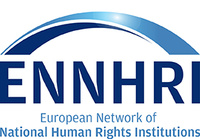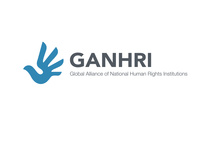International Cooperation

Overview
The Human Rights Centre is responsible for European and international cooperation in the promotion and promotion of fundamental and human rights.
The Human Rights Centre co-operates with national human rights institutions (ENNHRI, GANHRI), the EU Agency for Fundamental Rights, and with various bodies of the Council of Europe and the UN.


ENNHRI
The members of the European Network of National Human Rights Institutions (ENNHRI) brings together national human rights institutions across wider Europe. The Finnish human rights institution was accepted as a member in 2013.
The ENNHRI works to:
- enhance the promotion and protection of human rights across the European region
- assist in the establishment of national human rights institutions (NHRIs)
- support work carried out by existing NHRIs
- coordinate exchange of information and best practice between members
- intervene on legal and policy developments at a European level.
The Human Rights Centre participates in ENNHRI’s thematic working groups on topics such as:
- social, economic and cultural rights
- human rights of persons with disabilities
- European human rights system
- business and human rights
- communications


GANHRI
The Global Alliance of National Human Rights Institutions (GANHRI) (until 2016, the International Coordinating Committee, ICC) is the international association and leadership body of national human rights institutions (NHRIs).
GANHRI’s purpose is to:
- encourage cooperation and information sharing among NHRIs
- promote the role of NHRIs within the United Nations and with States and other international agencies
- undertake accreditation of NHRIs in accordance with the Paris Principles
- assist NHRIs under threat
- if requested, assist government to establish NHRIs.


European Union Agency for Fundamental Rights (FRA)
The European Union Agency for Fundamental Rights (FRA) seeks to instil a fundamental rights culture across the EU.
FRA's areas of work
The FRA's five-year strategy (2018-2023) defines eight thematic areas of work:
- access to justice, victims of crime
- information society and, in particular, respect for private life and the protection of personal data
- Roma integration
- judicial and police cooperation
- rights of the child
- equality and non-discrimination
- immigration and integration of migrants, visa and border control, asylum
- racism, xenophobia and related intolerance
FRA's tasks
FRA:
- provides the EU institutions and Member States with independent, evidence-based advice on fundamental rights
- collects and analyses information and data, and carries out comparative legal and social research
- communicates and raises rights awareness on European level
- publishes current reviews of the fundamental rights situation in the EU in its annual activity report.
FRA Management Board
Senior expert Leena Leikas from the Human Rights Centre acts as alternate member in the Management Board during 2020–2023.
The FRA Management Board is responsible for:
- defining the Agency's priorities
- establishing the budget
- monitoring the Agency’s operation.
The Management Board consists of:
- independent persons appointed by the Member States
- two representatives of the Commission
- one independent person appointed by the Council of Europe.
